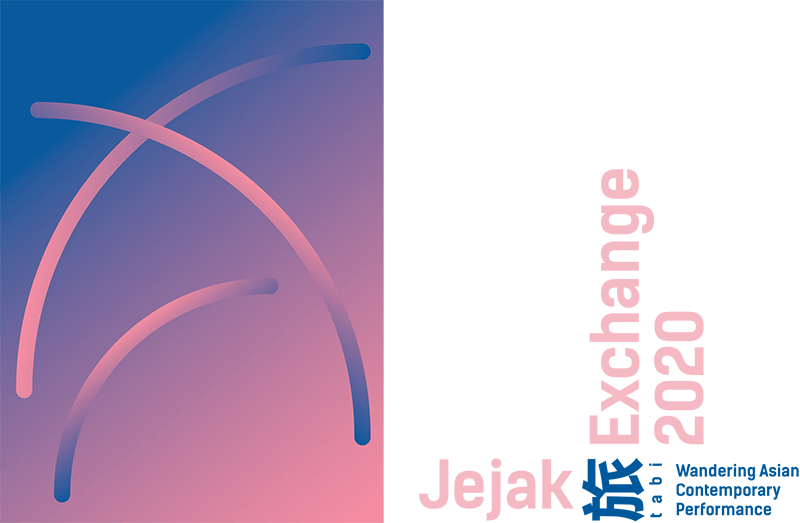

©Jejak tabi Exchange 2018-2021

Roxas City is situated east of the north-central coast of Panay Island. It is located 250 nautical miles southeast of Manila and 135 kilometers northeast of Iloilo City (the Regional Capital of Western Visayas). Travel time from Manila is 45 minutes by air and 18 hours by sea. Land travel to Roxas from Manila is also made possible via RoRo ferry from Batangas Port to Culasi Port. The Roxas Domestic Airport and the Culasi Port serve as the main gateways to the city from Manila. Languages spoken in Roxas City are Hiligaynon, Capiznon, Filipino and English.
Roxas City is a third-class city and is the capital of the Province of Capiz with a population of roughly 200,000. It is considered a major center for education, trade and economic activity in Panay Island. Although farming and fishing are the major economic activities, the city is moving towards commercialization and industrialization. With the city’s infrastructural development and a business district currently expanding on the site of the new 400 hectare Pueblo de Panay, Roxas is slowly progressing into a highly urbanized city.
Official Aftermovie
The Visayas Islands, the central group of six large and several hundred small islands, together with Luzon and Mindanao, comprise the whole of the Philippine archipelago. Southward from Manila, geographically known as Western Visayas, is Panay Island with four provinces: Iloilo, Capiz, Aklan and Antique. East of Panay Island is Negros Island, divided between Negros Occidental (Western Visayas) and Negros Oriental (Central Visayas). Bohol, Cebu and Siquijor make up the rest of Central Visayas. Eastward are the island provinces of Leyte and Samar comprising Eastern Visayas.
Unlike in Luzon and Mindanao, where the main population centers of the provinces are normally accessible by land, Visayas is fragmented by the irregular configuration of the archipelago with mountains lying close to the sea and narrow and uninterrupted coastal plains, making inter-island travel and establishing close physical contact with other Visayan islanders difficult.
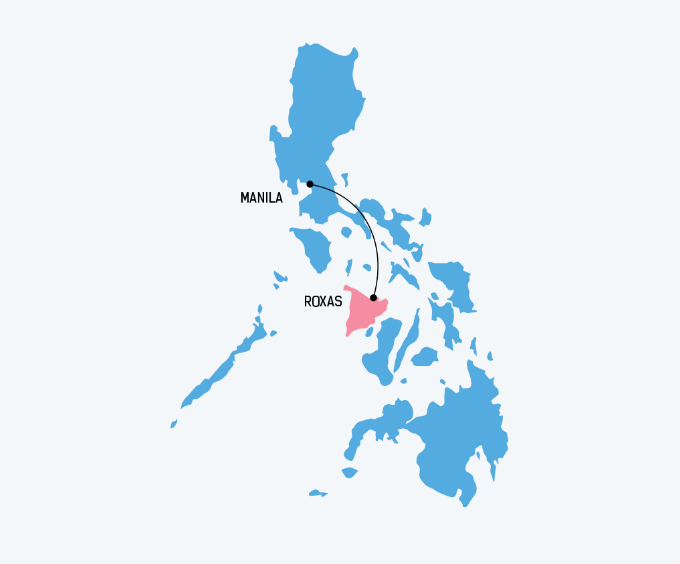
9:30 – 11:30 AM
12:00 – 2:00 PM
Palina River Cruise and lunch
6:30 – 7:00 PM
Chikako Yamashiro’s Mud Man (2016) addresses issues of cultural identity,geopolitics and the persistence of historical memory. Through a video shot in Okinawa and Jeju Island, the work features a lyrical and enigmatic narrative of a community of people awakened to poems of their history, nature, and other similar communities. (Text from Singapore Art Museum)
7:00 – 7:30 PM
Pagkatapos ng Tigkiriwi (2018) is a story of three areas in Negros Occidental struggling to uphold their right to land and food security. Produced by the Unyon ng mga Manggagawa sa Agrikultura (UMA) and directed by Danielle Madrid, the film won the Cinemalaya 2018 Best Documentary and was nominated for best documentary in the Gawad Urian Awards. (Text from Defend Negros FB page)
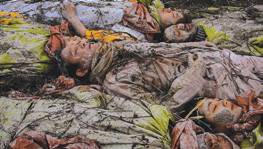
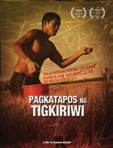
10:00 – 12:00 PM
Speakers: Edwin Quinsayas, Karlo Mongaya, Ariane Carandang
Reactor: Rudy Reveche
Moderator: Lisa Ito
1:30 – 3:30 PM
Speakers: Alejandro Deoma, Ma. Cecilia Locsin-Nava
Reactor: Ma. Rosalie Zerrudo
Moderator: Marika Constantino
7:00 – 10:00 PM
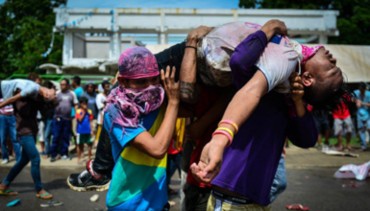
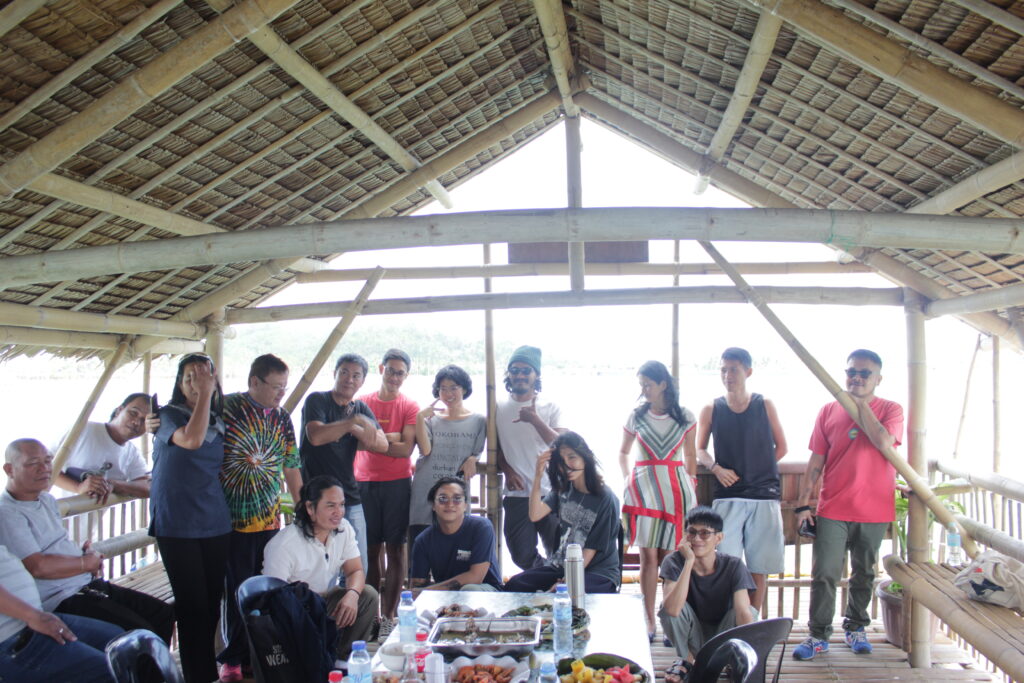

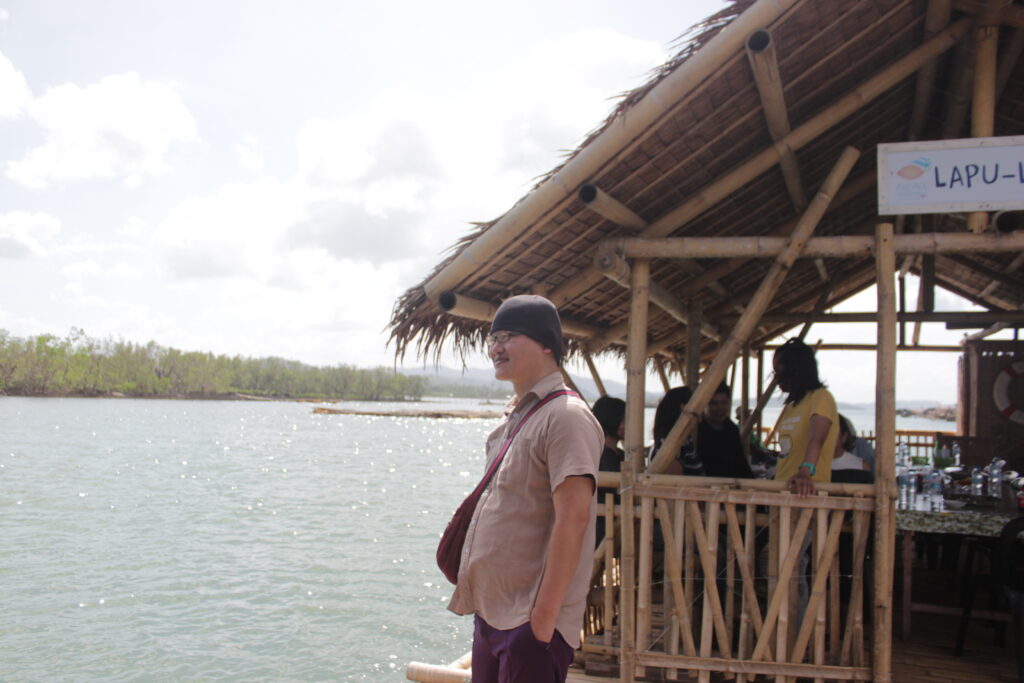
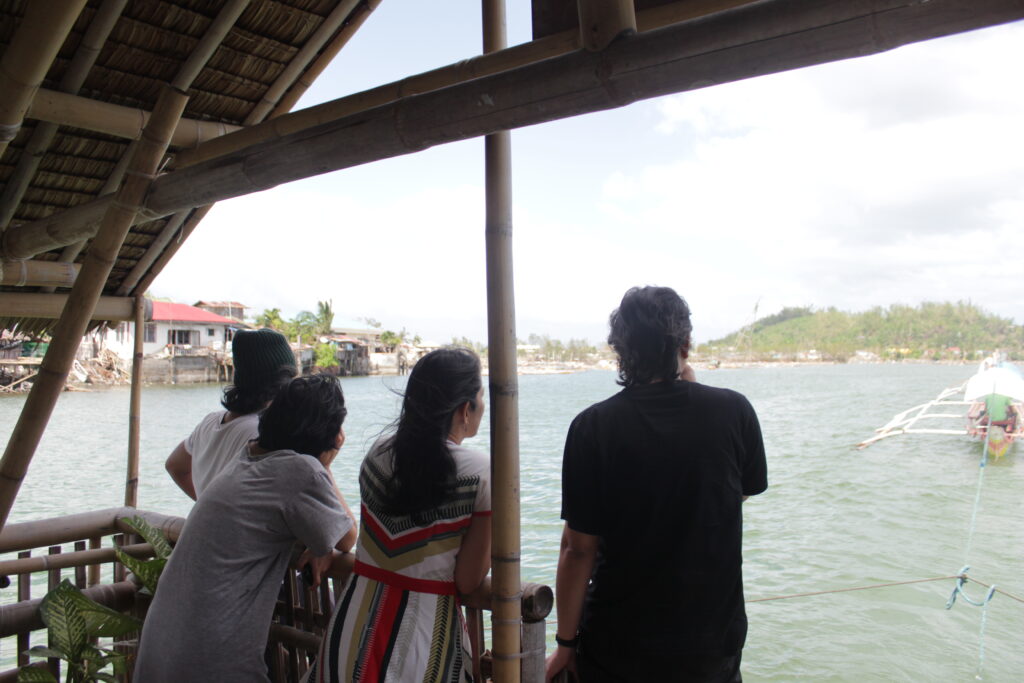
10:00 – 12:00 PM
Speakers: Muhammad Abe, Alfian Sa’at
Moderator: Helly Minarti
1:30 – 3:30 PM
Speakers: Janet Pillai, Wichaya Artamat, Miku Sato
Moderator: Amy Lien
3:30 – 4:30 PM
Speakers: Yudai Kamisato, Sei Kamida, Nomura Masashi
6:30 – 8:00 PM
Sa Digma ng Halimaw (Monster’s War) is a documentary theater about the war on drugs from the point of view of victims’families and others affected by it. Since taking office on June 30, 2016, Philippine President Rodrigo Duterte has carried out a“war on drugs”that has led to the deaths of over 20,000 Filipinos to date, mostly urban poor. Directed by Edwin Quinsayas of Sining Kadamay (SIKAD), an organization that advocates for the rights of the urban poor through art, Sa Digma ng Halimaw has been making the rounds of grassroots communities presented in public spaces and make-shift venues.
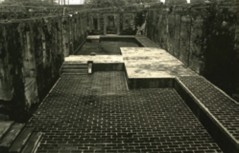
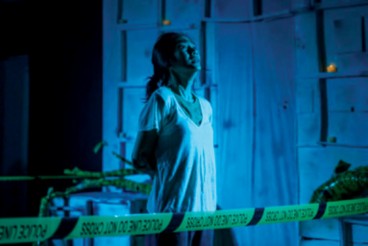
10:00 – 12:00 PM
Facilitator: MJ Apatan
GRF Training Center
This brief introduction to Theater for public school teachers is divided into two parts. The first part is a lecture on understanding what theater is, what separates it from other art forms, how to better appreciate and understand theatrical productions in various styles, and how it can function as a critical tool in shaping and changing the political, religious, and economic landscape of our society. The second part is a workshop where participants become familiar with the basic elements of theater, recognize the different types of stage arrangements and basic stage areas, and grasp theater concepts and terminologies.
2:00 – 3:30 PM
GRF Conference Room
7:30 – 11:00 PM
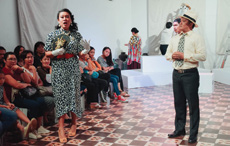

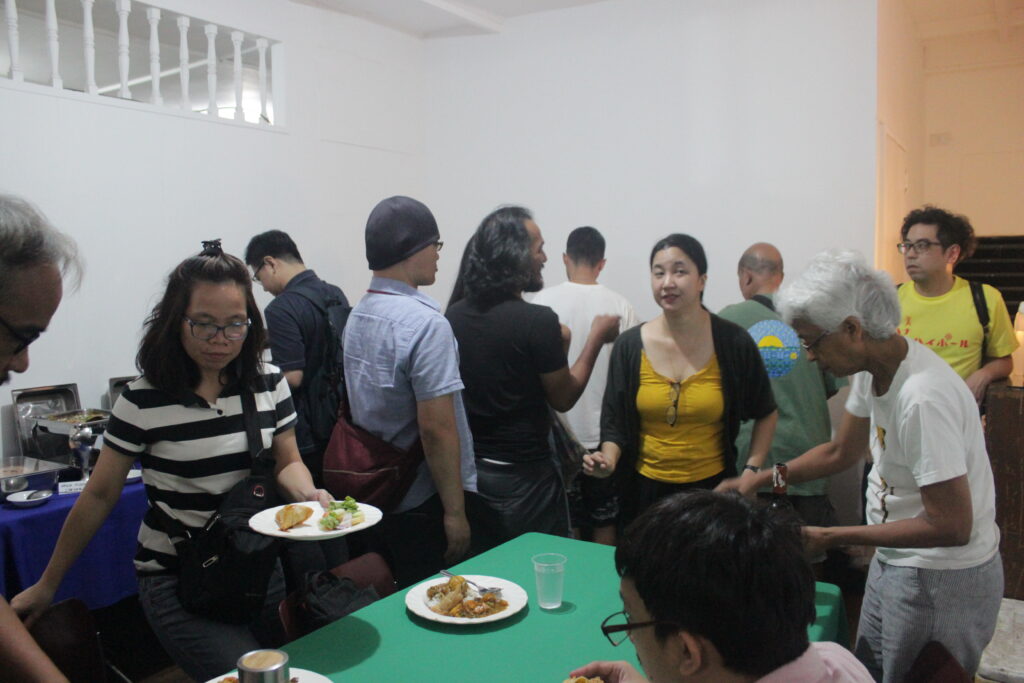
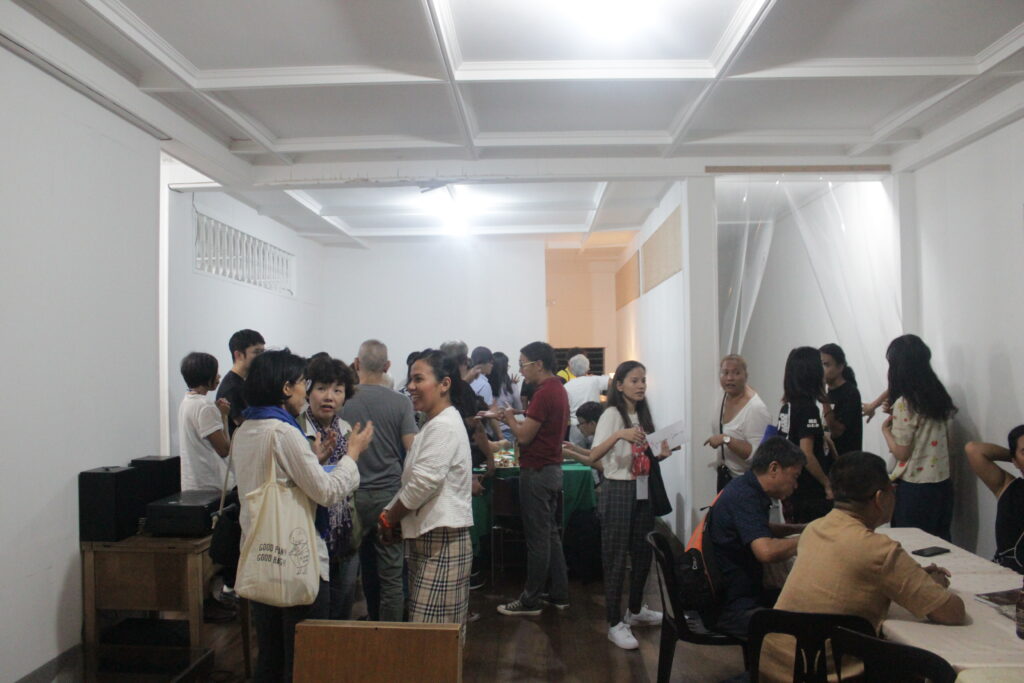
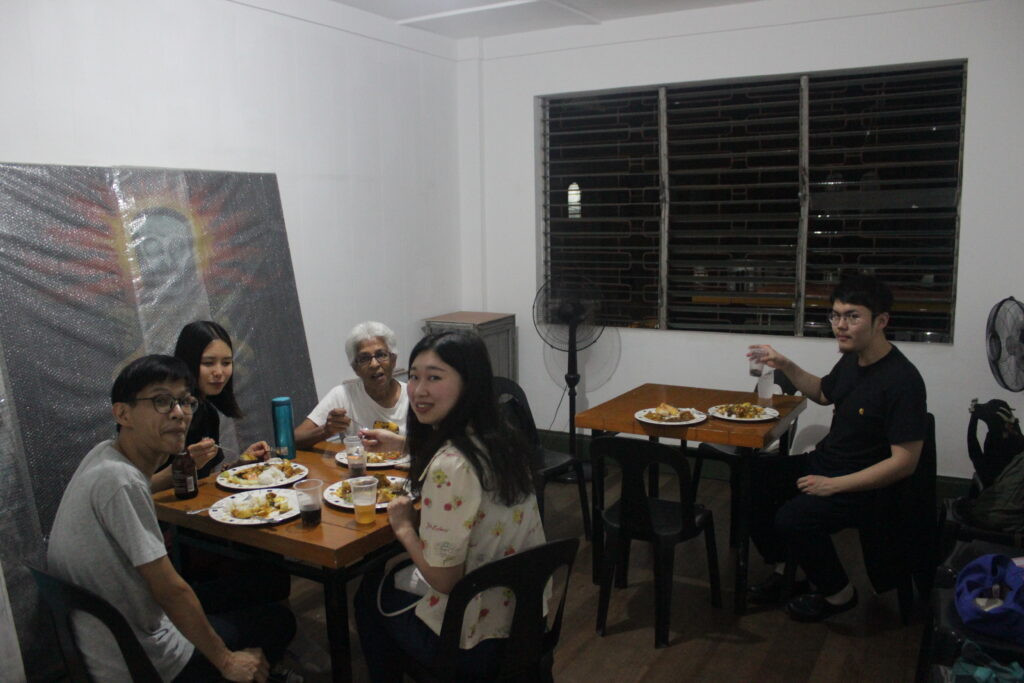

Helly Minarti is Jakarta-born and works as an independent, itinerant dance scholar/curator, rethinking radical strategies to connect theory and practice. She is interested in historiographies of choreography as discursive practice vis-a-vis the eclectic knowledges that infuse the understanding of human body/nature. She worked as Head of Arts for the British Council Indonesia (2001-03), which set her off to curating. She has been involved in various arts exchange projects, forums/conferences, and conducted research fellowships in Asia, Europe and the US. She is a recipient of the British Chevening Award, Asia Fellows Scholarship, Asian Cultural Council and most recently the US-ASEAN Fulbright Visiting Scholar Fellowship. Helly earned a Ph.D in dance studies from University of Roehampton (UK) and has just relocated to Yogyakarta where she is preparing to launch LINGKARAN | koreografi, a collaborative research platform focusing to expand the critical notions of choreography.
Born in Tokyo, Akane Nakamura is a performing arts producer and curator. While serving as a program director at ST Spot Yokohama from 2004 to 2008, she co-founded production studio, Precog Co., Ltd in 2006. Since 2008, she has been its CEO. Nakamura has produced numerous inter-disciplinary projects such as“Azumabashi Dance Crossing”(2004-2013) and“Spectacle in the Farm”(2009-2010). Precog has also produced a number of artists, including Chelfitsch and Toshiki Okada, Nibroll, and Okazaki Arts Theater of Yudai Kamisato. Her artists have performed in over 70 cities in 30 countries. In 2012, Nakamura directed KAFE9, a performing arts festival at KAAT (Kanagawa Arts Theater). In 2012 and 2014, she produced Kunisaki Peninsula Art Festival as its programme director. In 2016, she produced“ Inuto Imago”as part of Setouchi Art Triennial, Inujima Performing Arts programmes,featuring contemporary musician Kazuhisa Uchihashi and several artists from Indonesia. In 2016, she was a grantee of the Asian Cultural Council fellowship. In addition, she is one of the founding members of The Open Network for Performing Arts Management (ON-PAM).
Green Papaya Art Projects is an independent initiative that supports and organizes actions and propositions that explore tactical approaches to the production, dissemination, research and presentation of contemporary practices in varied artistic and scholarly fields. It endeavours to provide a platform for intellectual exchange, sharing of information, critical dialogue and creative/practical collaboration among the artistic community. Co-founded in 2000 by Donna Miranda and Norberto Roldan, Green Papaya Art Projects is the longest running artist-initiated multidisciplinary platform in the Philippines. In 2010 Merv Espina became program director while Miranda became curatorat- large. Roldan has remained as artistic director from its inception in 2000 and will remain until Green Papaya sees closure in May 2021, after 21 years in operation.
Born in Central Java, Indonesia, Muhammad Abe is based in Yogyakarta and works as an actor and researcher. He is the director of Indonesia Dramatic Reading Festival (IDRF). In 2019 he was one of the curators of Asian Playwrights Meeting in Yogyakarta. Abe has been working in various fields of art, with projects which include researching and exhibiting archives of Bagong Kussudiardjo and Wisnoe Wardhana for Jejak Tabi Exchange in Yogyakarta (2018), researching and writing for Pekan Teater Nasional Indonesia (Indonesia National Theater Festival, 2018), as observer for Asian Dramaturg Network (ADN) in 2018, and curator for Indonesian play in“ Indonesian New Plays”p ublished by Aurora Metro Books, London, 2019.
Born in Escalante City, Negros Occidental, MJ Apatan currently teaches Creative Writing, Media Arts/Photography and Short Filmmaking for public high school students. Apart from being a teacher, she has been an active senior member of the Busilak Theater Ensemble for the last 16 years. She was recruited to be part of Busilak’s production and technical team and worked as a scriptwriter and assistant director, and later on became its creative dramatic trainer. As a cultural worker, Apatan has been conducting trainings not just for new recruits but has been helping establish schoolbased and community-based theater groups.
Wichaya Artamat is a member of For What Theater. He studied film in his undergraduate and was captivated by performances, which led him to work in theater as a project coordinator for Bangkok Theater Festival 2008. He joined New Theater Society in 2009, during which he grew to become a director recognized for various experimental forms and unconventional theatrical approach. Artamat is especially interested in exploring how society remembers and unremembers history through certain calendar days. He co-founded For What Theater in 2015, and is also a member of Sudvisai Club and Collective Thai Scripts.
Ariane Carandang is a musical theater trained actor, musician, playwright and dramatist. She is the current head artistic director of Arts for the People or Sining Na Naglilingkod sa Bayan (Sinagbayan). Sinagbayan is a nationwide organization of cultural workers, artists and educators which aims to develop the youth in rural areas through the use of creative forms in educating the different sectors of their communities. The organization has trained countless cultural workers in all sectors, especially the peasantry, and has devoted 19 years in producing art that serves the people’s interests and aspirations. Sinagbayan has 4 major chapters in Metro Manila and other minor chapters in different regions, in Quezon Province, and Southern Mindanao Region.
Bundo Deoma was chair for 4 years and artistic director for 2 decades of Teatro Obrero (TO). He has organized TO’s re-enactment of the Escalante Massacre from 1986 to 2017 and was festival director of the 31st Escalante Massacre Commemoration. He started his cultural work in a parish-based theater group where he acquired skills in basic theater arts, organizing and leadership training, scriptwriting, directing, and festival management. He was a volunteer/artist for PETA for a year and became a trainer/facilitator for BANAAG Center for the Popularization of Visayan People’s Culture for 3 years. He is presently a consultant to the City of Himamaylan in Negros Occidental where he assists in cultural mapping leading to the establishment of the Himamaylan City Arts Council.
Born and based in Okinawa, Sei Kamida has been engaged in stage creation for children’s musicals in Laos from 2012 to 2014. After returning to Japan in 2015, he performed in Othello in Naha, in Blind Blind Box, Donsoko, Repelling Sins, and other appearances. In video work, he was selected to play the role of hero in the drama Acres Grandmaster (2016). Since then, Kamida also appeared in some films, including Forgotten Whale Island (2017) and King Shoen (2020). Expanding the scope of activities using English and Lao, he started creative activities in Thailand in April 2019. Brotherhood 3on3 won the International Award at Bangkok Theater Festival 2019, the largest theater festival in Thailand. For independent projects, he also produced and performed poetry and video concerts: Pure Earth Poetry, Yasugai, and Douchi Uchiunii.
Yudai Kamisato is a playwright and director born in Lima, Peru in 1982. His father emigrated to Peru from Okinawa, Japan. In 2006, he became the youngest person ever to win the first prize in the TOGA Directors’ Competition for his staging of“Desire Caught by the Tail,”written by Pablo Picasso. In 2018, he won the 62nd Kishida Kunio Drama Award for“The Story of Descending the Long Slopes of Valparaíso”. His work as a writer has attracted increasing attention in recent years, with his scripts appearing in the literary magazine Shincho and translations of his plays receiving performances and readings in Seoul, Hong Kong, Taipei, and New York. From 2016-2017, he spent a year in Buenos Aires, Argentina, on a grant from the Agency for Cultural Affairs. He was also a junior fellow of The Saison Foundation from 2011-2016.
Karlo Mikhail I. Mongaya is instructor, Department of Filipino and Philippine Literature, College of Arts and Letters, University of the Philippines-Diliman, Quezon City, Philippines. He is pursuing his MA Araling Pilipino with a thesis on the practice of revolutionary journalism during the height of the anti-Marcos dictatorship struggle in the early 1980s.
A specialist in the literature and culture of Western Visayan studies, Cecile Locsin-Nava is a bilingual writer, researcher, and translator who once served as College of Arts and Sciences dean and Mass Communications head at the University of St. La Salle in Bacolod City. She was the first curator and director of the Negros Museum, as well as the Museo Negrense de la Salle. She won in 2017 the first ever Researcher’s Prize from the National Commission for Culture and the Arts (NCCA) for her book on Ilonggo composer/actor/playwright and director Joel R. Arbolario entitled Kaupod: The Life and Works of Joel R. Arbolario (2018). For her remarkable contributions to Philippine literature, her alma mater University of Santo Tomas honored her with the 2019 Gawad Ustetika lifetime achievement award.
Masashi Nomura is a theater producer and dramaturge born in Nagano Prefecture in 1978. Since 2007, he has been enrolled in the production division of theater company SEINENDAN and Komaba Agora Theater. Alongside, he has worked as dramaturge for young directors. As the program officer of Okinawa Arts Council, he was involved in the establishment of a small theater/atelier Mekaru Base in Naha City. After that he started to organize the annual meeting of the Free Scene Network Japan with private theater managers. He is currently Nagano prefecture’s cultural coordinator and a board member of the Open Network for Performing Arts 10 / Management (ON-PAM). His latest works as dramaturge are The Bacchae−Holstein Milk Cows (Aichi Triennale 2019) by Satoko Ichihara, I Go Through You – Performance (Kyoto Experiment 2018) by Chikako Yamashiro, and The Story of Descending the Long Slopes of Valparaíso (Kyoto Experiment 2017).
Janet Pillai served as an Associate Professor at the Department of Performing Arts in University Sains Malaysia until 2013. She was an active theater director and also founded Arts-ED (2007), a non-profit organization in Penang which provides place-based arts and culture education for young people. Currently Pillai is an independent researcher and activist in the field of arts education and cultural sustainability. Her specialization is in cultural mapping, community-engaged arts, and creative pedagogies. Her work entails research, programming and managing community-engaged projects in partnership/consultation with communities, local agencies, artists and professionals. Pillai has authored three books and numerous articles on arts, culture and heritage. She also contributes as expert resource person in regional organizations such as UNESCO Bangkok, APCIEU Korea, and Getty Foundation.
Edwin Quinsayas is a cultural worker, and a theater and performance artist. He traces his roots in theater activism through witnessing performances that deal with social crises while in university. Participating in a street theater about the issues of child labor and countryside militarization sealed his conviction to pursue activist theater. His works probe on themes of dislocation, suppression and resistance. His performance“Fours All”at the 2018 Asiatopia Festival: A World Reversed, was about labor migration, while his“A Feather Duster Got Into the Zoo”for the 2017 SIPAF was about extra-judicial killings. His recent works, Sa Digma ng Halimaw (The Monster’s War, 2018-2019) tackles the government’s sham drug war; and Gapok (Brittle, 2016-2017), was about forced evictions. Quinsayas is currently the Performing Arts Program Head of SIKAD, a group of artists and cultural workers seeking to advance urban poor struggles.
Alfian Sa’at is the resident playwright of Wild Rice. In 2001, he won the National Arts Council Young Artist Award for Literature. He has been nominated 11 times for Best Original Script at the Life! Theater Awards, winning for Landmarks (2005), Nadirah (2010), Kakak Kau Punya Laki (Your Sister’s Husband, 2014) and Hotel (with Marcia Vanderstraaten, 2016). Sa’at has also been awarded the Boh-Cameronian Award in Malaysia for Best Book and Lyrics for The Secret Life of Nora (2011) and for Best Original Script for Parah (Wounded, 2013). His plays have been performed in Singapore, Kuala Lumpur, Tokyo, Stockholm, Copenhagen, Melbourne and Berlin.
Born in Japan, Miku Sato received her BFA Painting from Musashino Art University, Tokyo in 2009, and completed her MFA Film and New Media Studies from Tokyo University of the Arts in 2019. She currently works in the Netherlands supported by Japanese Government Overseas Study Programme for Artists. Sato’s practice is based on her fieldwork of specific places, where she starts up a project delegating her intention to the local people she selects. Through video, installation and people’s participatory action, she explores new perspectives and alternative possibilities of relationship between individuals and the world, as well as passivity and proactivity in society. Her quest is to compose her own new narratives to retell the past and present together under a different light.








